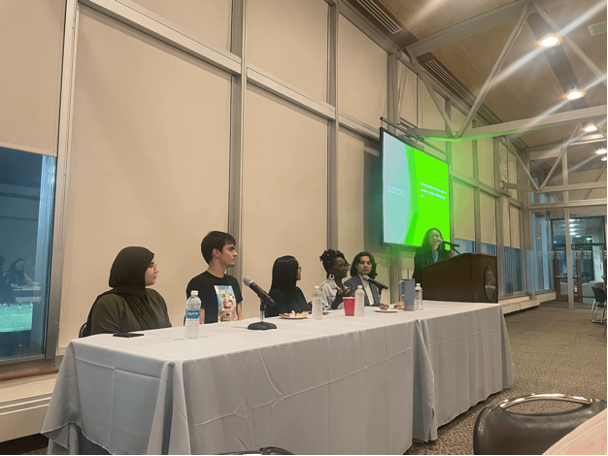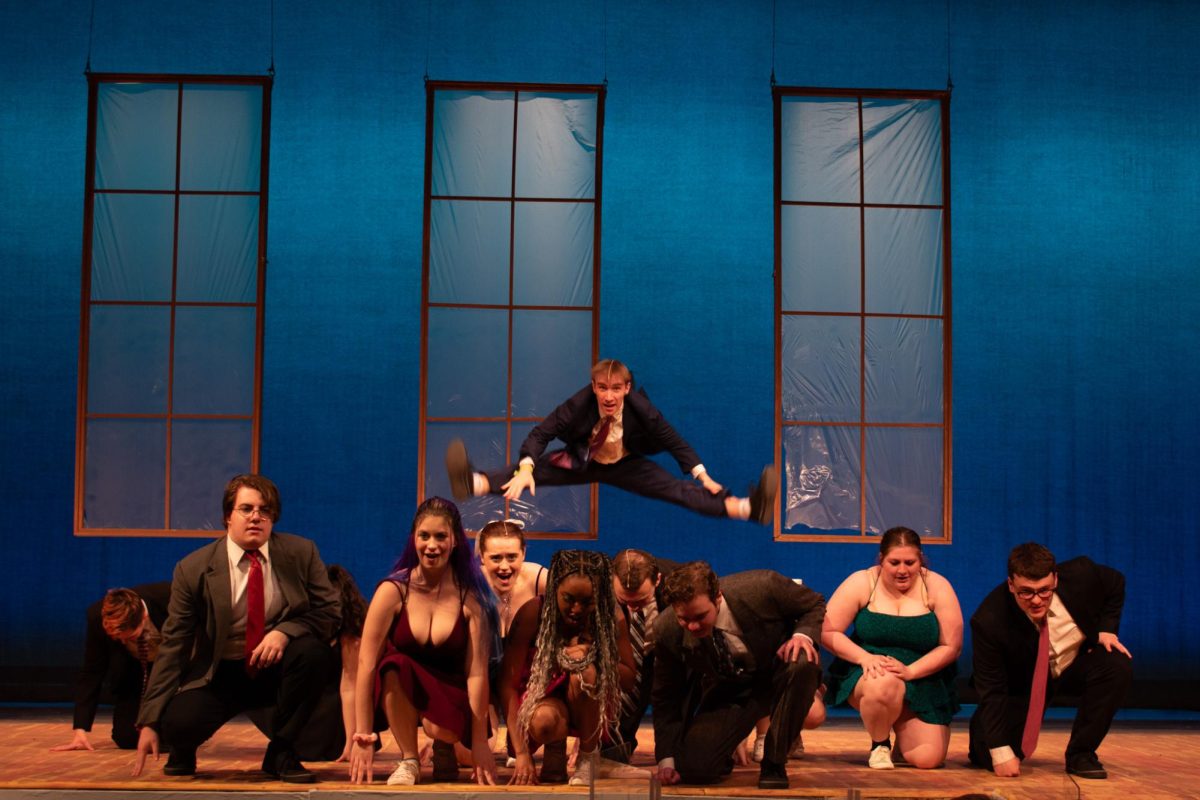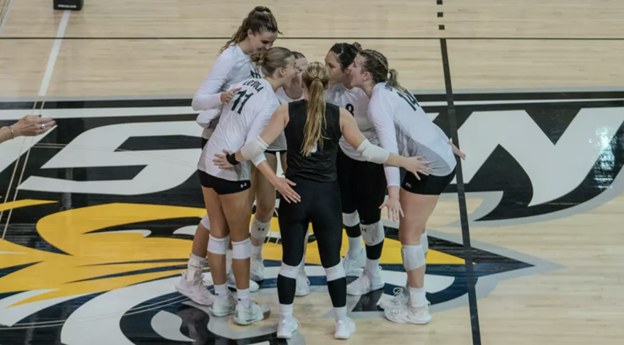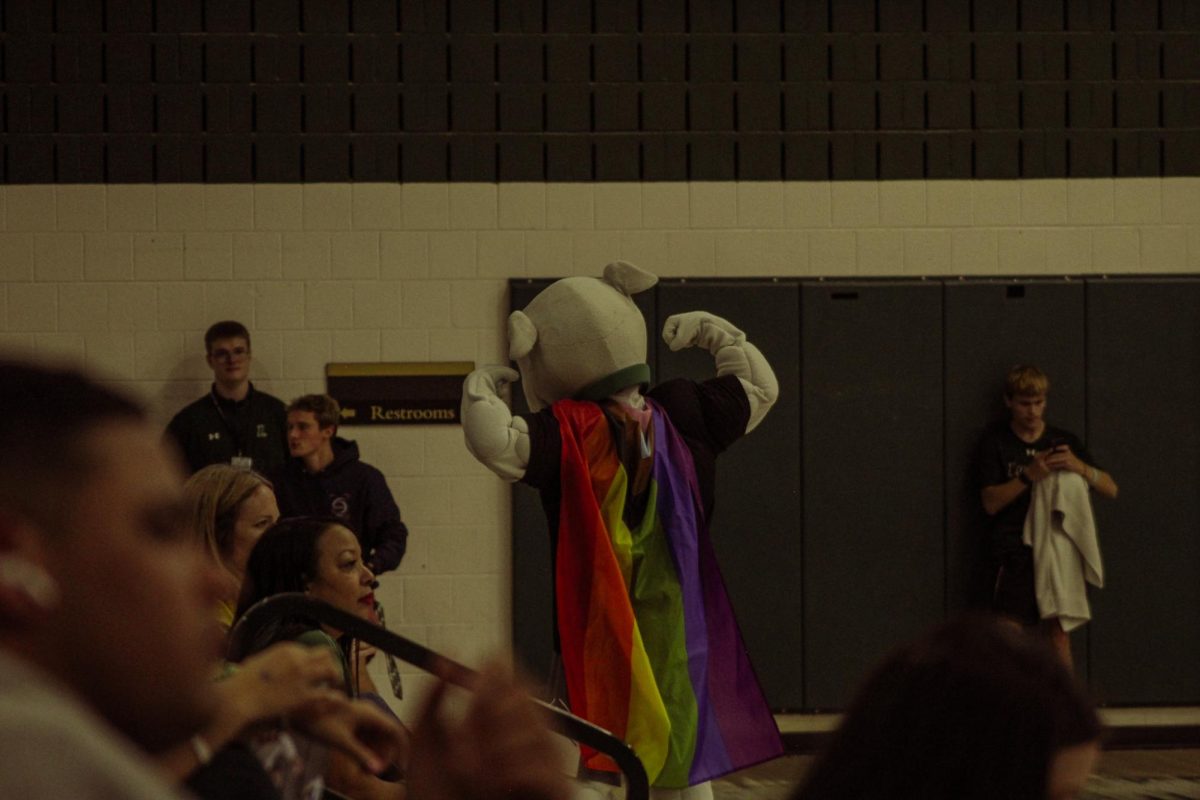Why Examining the Controversy over Father Martin’s Book about LGBTQ Rights and the Catholic Church is Essential for Loyola Students
This past May, graduating Loyola seniors entered Reitz Arena, a thousand black robes holding different colored banners and walking in the shape of a cross. Four years of toil, success, and personal growth were ending in joyous celebration for thousands of young adults and working professionals from around the world.
Among the many faces who packed in the stands, stood on the rails, and sat in rows of chairs on the stage was a man wearing the traditional white collar in his own black robes. The man’s position as one of the most visible Jesuit priests in the United States called for him to wear robes appropriate for the occasion of receiving an honorary degree from Loyola.
The Rev. James Martin delivered a commencement address in which he offered 10 pieces of life advice to the graduating Greyhounds, delivering his message with his trademark wry humor and respectful wit. On that day, Martin became, in his words, “a member of the Loyola University Maryland Class of 2017” and a “proud Loyola graduate.”
Five months later, Father Martin has become the focus of a conversation quite unlike the hopeful, polite exchange of wisdom facilitated by his commencement remarks. Martin’s book, “Building a Bridge: How the Catholic Church and the LGBT Community Can Enter into a Relationship of Respect, Compassion, and Sensitivity,” has been received by some as a highly controversial suggestion for closing the divide between the LGBT community and Catholic Church.
Martin’s position as editor-at-large for the magazine America: The Jesuit Review, his multiple appearances on “The Colbert Report,” and his publications, whether they be books with HarperCollins or commentary in The New York Times, speak to the importance of Martin’s place as a Jesuit in the larger public conversation. In a way, Martin has become known for his desire and ability to enact and to execute intelligent, timely dialogue regarding issues pertinent to both the Catholic Church and the global story, such as spirituality, aiding the poor, Mother Theresa’s sense of abandonment by God, and homosexuality.
Unfortunately, the conversation surrounding Martin’s most recent work reads, in some ways, much less like a respectful exchange geared towards shared progress and more like a comment chain on a YouTube video related to the 2016 Presidential Election.
Media outlets such as Church Militant called for the removal of Martin from the clergy in which 77% of respondents voted for Fr. Martin to be “defrocked and laicized” due to his recent comments on homosexuality’s relationship to the Catholic Church. Theologians and church leaders spoke out against him, such as famed moral theologian Janet Smith’s reaction to Martin, calling his positions “slick dissent” from the Church that “could jeopardize the salvation of the people who hear his message.”
By using this particular terminology, drawing a comparison between some of his critics and a collective group that is typically associated with hate speech in politics (and elsewhere), Martin divorces some of the more curt, character-based responses to his position from more temperate dialogue.
As a result of this controversy surrounding Martin, the LGBT community, and the Church, Martin has been uninvited from presenting at universities. However, Jesuit leadership has publicly defended Martin, noting the particular effectiveness and resonance of Martin’s work and considering his position one of immense value as a Catholic and as a Jesuit in theological and global conversations.
This controversy showcases the split not only in the Catholic popular sentiment, but also from those of influence in the Catholic and religious lexicon.
So, detailing the intensity of responses and the necessity for defense of not only Martin’s positions, but his entire body of work, introduces the question: what, exactly, makes Martin’s position on homosexuality in relation to the Catholic church so volatile?
Bishop Robert McElroy, in America, states Martin’s thesis plainly: “Jesus Christ and his church seek to embrace fully and immediately men and women in the L.G.B.T. community.” Martin explains in the opening chapter of his book, and in shorter explanations and articulations of his position via NPR, how the Pulse Nightclub shooting—where 49 members of the LGBT community were murdered on June 16, 2016—influenced his desire to investigate a topic so controversial in regards to Church doctrine. The topic itself is practically corrosive when mishandled.
However, despite any amount of prescience Fr. Martin had in regards to the ensuing conversation – and his embracing of even the negative commentary as a chance to discuss the issue – there are certain limits pertaining to what strains of exchanges result in constructive discourse, as illustrated by some of the more vulgar responses to Fr. Martin’s work. Here, according to an article in Church Militant, is what Fr. Martin’s writings promote:
- Martin supports transgenderism in children
- Martin supports a dissident priest who promotes gay “marriage” and women “priests”
- Martin publicly derides Catholics adhering to Church teaching on homosexuality as “homophobic” and “close-minded”
- Martin characterizes censured pro-gay nun Sr. Jeannine Gramick as worthy of sainthood
- Martin publicly promotes homosexuals’ ordination to the priesthood
The same article goes on to discuss a range of responses, from both laypeople and different authorities of the Church, in regard to Fr. Martin’s propositions. Now, without passing particular judgment on the efficacy of either these types of criticisms or Fr. Martin’s defenses, an interesting point raised, in some way, by every participant in the discussions is the fascinating line between the concreteness and evolution of what constitutes Church doctrine. The age in which we live is one defined by the quick-hit. The President, the Pope, and your high school Principal all – most likely – have a Twitter account. The accessibility between those in positions of power in terms of public discourse – politicians, priests, personalities, pundits – and those whom they influence has been shortened in a quite amazing way. These sources criticizing not only Fr. Martin, but the international Jesuit leadership’s defense, are showcasing how the Catholic Church as an institution is a living, breathing creation, formed at the foundation by an adherence to scripture and the immortal conscience of God but executed, chiefly, by men. Whatever credibility vested in Fr. Martin or his superiors is not enough, solely, to satiate the objections raised by those questioning Fr. Martin’s views, and the core point illustrated by the exchange is that an individual’s particular authority, while it should be respected, should not be able to substitute for reasoned dialogue towards development of shared progress. Fr. Martin does not use his Catholic clout or his wide visibility as a cudgel to silence his opposition; rather, Fr. Martin invites those who disagree with him to express their beliefs through reason.
Early in his book, Martin refers to the development of “echo chambers,” and states how the Church should be a sign of unity instead of “contributing to division.” This division alludes to a core tenet in those blessed with an education and the ability to reason: in our times, we cannot allow logical, constructive conversation to backslide into dismissive, abusive, and unacceptable polarization.
Dismissing Martin as a “pansy” (or many other words much more vulgar) is to commandeer an insult commonly levied against a group of people who have been marginalized, persecuted, beaten, killed, and banished in America’s history, and who still bear the risk of being actively killed for their sexuality in dozens of places across the globe.
The conversation around Martin is part of a narrative spanning thousands of years, and when one exists in a tradition, it is absolutely necessary to understand the meaning of our position in reference to the past, present, and future. Such is the only way to reconcile differences to a place of unity—not homogeneity, not complete agreement, but a functional discourse based on the pursuit of the Good.
Those students currently attending Jesuit universities such as Loyola are in possession of two invaluable things in addition to the degree they shall receive shortly after across the stage at graduation. First, we, by virtue of our study and by fulfillment of our lives, possess a connection to the Jesuit identity, and the Catholic identity, which will last for our lifetimes and long after.
Second, with that identity, and as active participants in the ongoing narrative of faith, we possess a responsibility to interrogate what that means. Investigating Martin’s situation is to apply to our daily loves the ideas essential to our vocations, inscribed not only on the banners in Reitz Arena but instilled in the ways we are called to think.
We discern what we believe in order to better serve those in the larger world. We fuse our beliefs and our faith using logic, practically applying the boldness of our hearts through the use of our minds. And, most importantly, we must holistically consider the stories and positions of those who are members of both the LGBT community and the Catholic community.
While we may not necessarily understand their lives through our own experiences, we can, by listening to their stories, engaging with their perspectives, and joining with them with compassion and respect, bring us all closer to answering not only an essential question in our shared histories and to fulfilling our potential, vested in us at birth, developed by years of practice, so that we may serve others to the fullest extent of our capabilities.
This is the responsibility. This is the more. And, through approaches and arguments centered on reason combined with careful attention to Church history and doctrine, the controversy surrounding Martin, our fellow Greyhound, can serve as a vehicle for empathy, enlightenment, and as an example of finding God in all things.














































































































Anonymous • Oct 26, 2017 at 9:12 am
4.5
Anonymous • Oct 26, 2017 at 8:22 am
5